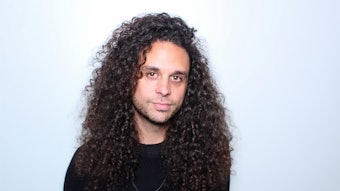
“First lesson: when money comes in, you pay yourself first. Take ten percent of whatever you earned and place it into a savings account.”
No matter how much money you bring in, do you ever get to the end of the month and ask yourself, where did my money go anyway? It disappears because crafty marketing techniques make it easy for you to part with your money. We spend mindlessly. Here’s one error I made for years and years and years. If ever I got to the end of the month and there was money left over in my checking, I would be so happy and celebrate finding something to spend it on. “Oh, I’ve got $250 leftover in the bank, and I’ve paid all of my monthly expenses. I can get those shoes.” Wrong.
What you have left at the end of the month after expenses I call my magic number. You want your magic number to be as high as possible to cover an emergency. One out of every three of us will have a financial emergency this year. Let’s take a quick look at your vital financial signs to keep you in the money.
I will ask you to review your past expenses in the next exercise; as you do this, keep this in mind: money is a compelling form of communication—just like speaking, writing, or body language Your spending says who you are, what you value, and what you ignore or disregard. Your spending falls into two big groups: Needs and Wants.
Needs are those items you must have to survive. Wants are all those,
“would be nice to have” things that make life enjoyable. You, like me, probably overspend on wants simply because they are just more fun than needs.
So, let’s get into it. If you want to get out of debt and save some money, here are your first steps to consider:
First lesson: when money comes in, you pay yourself first. Take ten percent of whatever you earned and place it into a savings account.
Second lesson: before you splurge on anything, cover your basic needs first. Why? Because these affect your lifestyle instantly. The five basic needs are:
1. Shelter: mortgage or rent
- Food
- Utilities: electric, water, gas, phone, internet
- Transportation: car payment, insurance, registration, gas, repairs.
5. Medical expenses, health insurance.
Third lesson: you want to improve your credit? Pay everything on time. Not a minute late. So, set the payments for the above on autopay.
Here’s the easy way to find out where your money goes to get to your magic number:
- Log on to your online bank statement and review every expense you made in the last 30-60 days.
- Classify every charge as either a need or a want.
Look at a charge, figure out what it was for, then ask yourself, is this a basic need I need to survive? If not, it’s a want. No cheating, ok?
Here are a few examples: food/groceries are a basic need, but carryout is a choice, so it’s a want, not a need. Cable and streaming subscriptions are wants, not needs.
Go through your entire last 30 days until you classify every expense. All you need are two columns, one for needs the other for wants, enter the expense name and the amount.
-
- Review your online account for at least the last thirty days if you work commission
- Review your online account for at least the last sixty days or more if you rent a station
- Next, total both columns, and you get your total spending.
- If you lease a station, the rent is a business expense. Most ordinary business expenses are needs.
Now, how much do you expect to bring home from salon sales next month?
Your magic number is the difference between your total spending and your monthly income.
I always get this question, “What is a good magic number to have?” The answer is 10% of your gross income or above.
Here is an example of a magic number calculation
TOTAL NEEDS: $ 675
TOTAL WANTS: 670
TOTAL BIZ EXPENSES: 725
TOTAL EXPENSES: $2,070
MONTHLY INCOME: $ 2,300
minus TOTAL EXPENSES: 2,070
MAGIC NUMBER: $230 (10% of income)
What’s the big deal about the magic number? It tells you the truth, like when you weigh yourself on a scale. Here is what your magic number is telling you:
- HIGH: Pay off all debt, invest in savings, and build your 6-month rainy day fund
- EVEN: You are living above your means; cut expenses/ Increase income or both
- NEGATIVE: Living way above your means, create an emergency budget to cut expenses, and increase your income.
Happy Holidays to all. And remember, you don’t need to go into debt to make the holidays magical.
To purchase a copy of The Thrifty Cosmetologist program: https://gumroad.com/l/arPf
I write from my personal experience. Check with your financial planner before you implement ideas from the Thrifty Cosmetologist—C.Valenzuela











